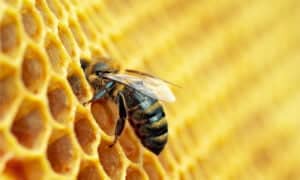Although you might not know it, pollination is one of the most important tasks on planet Earth. If the insects that pollinate plants disappeared tomorrow, the food chain would be completely disrupted. Countless plants would die off, and many of the animals who rely on them would go extinct. But, what insects are responsible for pollinating, and just how valuable are they to nature? Let’s discuss whether or not carpenter bees are important pollinators and explore their role in the wild.
Carpenter Bees: A Brief Overview
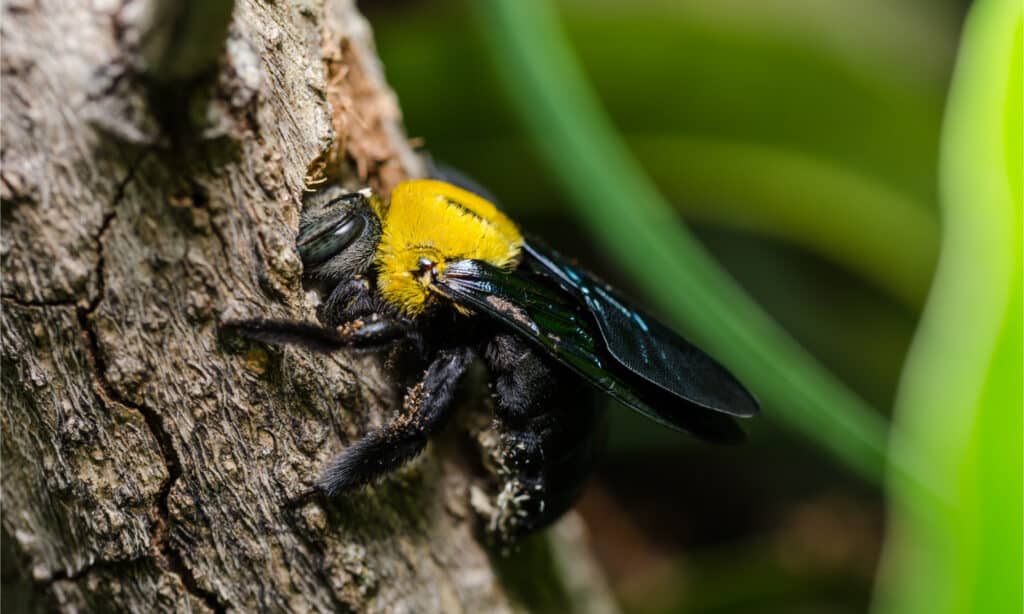
These insects belong to the genus
Xylocopa, which is comprised of roughly 500 individual species.
©SweetCrisis/Shutterstock.com
Carpenter bees belong to the insect order Hymenoptera, and they are related to insects such as ants, wasps, and hornets. There are roughly 500 different species of carpenter bees, although only a handful of them are native to the United States.
While some winged insects are famous for being territorial and stinging, carpenter bees are rather peaceful. Unlike wasps and hornets, carpenter bees sting much less often. This is because males do not possess stingers at all, and females are less aggressive in general. These insects will only sting as a last resort and many only do so if provoked repeatedly. The sting of female carpenter bees contains some venom, and the sensation can be painful. Although the sting is uncomfortable, it is non-life threatening. However, individuals who are allergic to bee stings may need to seek professional medical attention.
Are Carpenter Bees Pollinators?
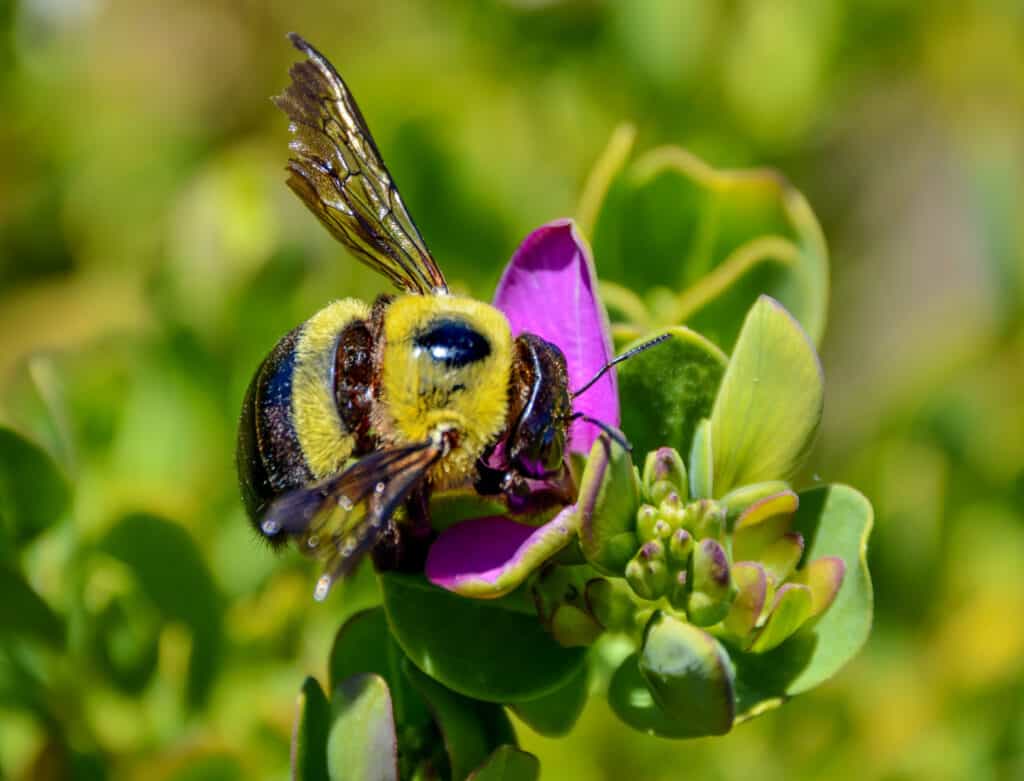
Some carpenter bees can live to be three years old.
©Cathy Withers-Clarke/Shutterstock.com
According to the Penn State Extension, “Carpenter bees are important pollinators of many flowering plants found in our gardens, natural areas, and on farms. In fact, 15% of our agricultural crops are pollinated by native bees such as carpenter bees.” Carpenter bees are well suited for this job due to the hair present on their heads and midsections. Despite this, they are slightly less effective than bumble bees, as bumble bees have hair all over their bodies.
Although carpenter bees are some of the most important pollinators in the world, some people consider them a burden. As their name suggests, carpenter bees construct their nests in wood. This has the potential to damage a variety of wooden structures, which some homeowners aren’t thrilled about. Despite this, many people feel as though it’s a small price to pay for all the benefits carpenter bees offer the world.
Are Carpenter Bees Beneficial to Nature?
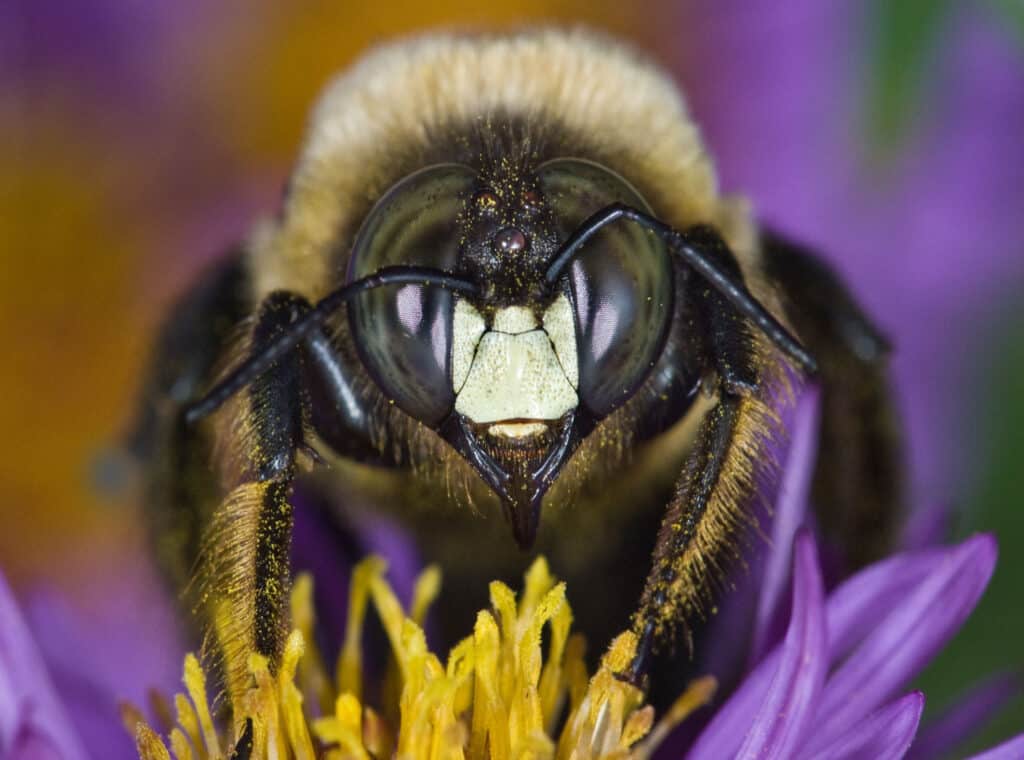
While some carpenter bees can be territorial, they won’t become aggressive unless they feel their lives are in danger.
©Gerry Bishop/Shutterstock.com
Even though every insect plays a role in keeping our ecosystem stable, carpenter bees are some of the most beneficial of all. Aside from being important pollinators, they are also an important food source for many animals such as birds and reptiles. Important insects predate carpenter bees as well, such as praying mantises and wasps. Carpenter bees support both flora and fauna. Without their presence, there’s no question that the order of nature would be greatly disrupted.
What Would Happen if Carpenter Bees Went Extinct?
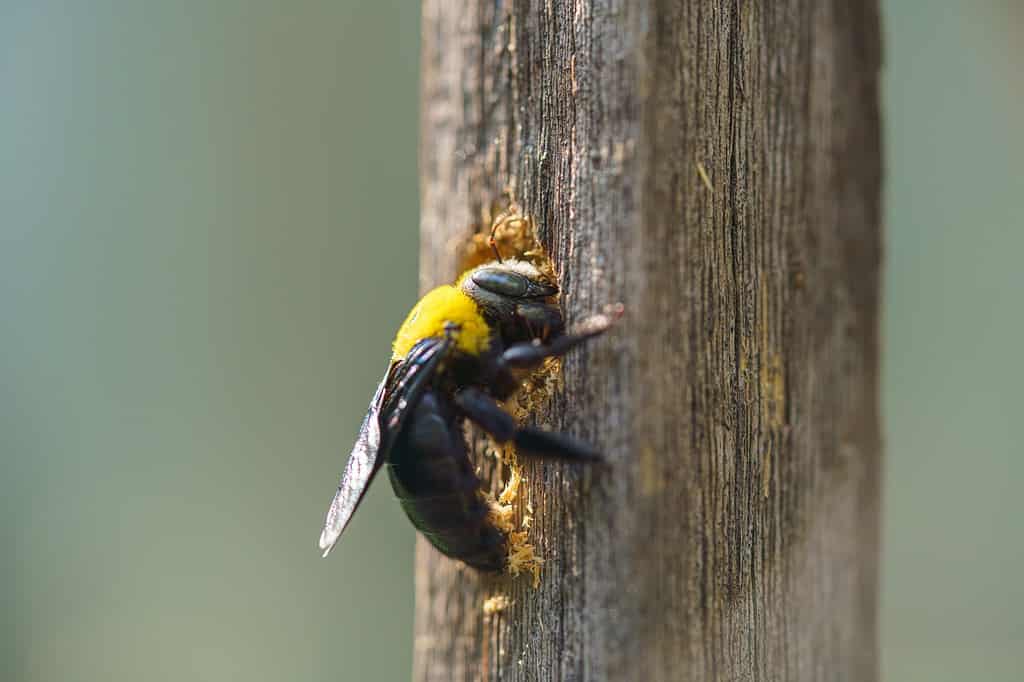
While bees are likely the most popular pollinators, other animals such as butterflies, birds, and bats also do this job as well.
©media-ja/Shutterstock.com
Throughout recent history, the general public has become increasingly worried about bees going extinct. Luckily, the bee population across the globe is currently stable thanks to the work of conservationists, entomologists, and movements such as “Save the Bees.” (However, it is important to note that although bees aren’t threatened overall, certain species are still in danger of going extinct.)
While bees going extinct isn’t a present concern, mankind must continuously work to prevent this from ever happening in the future. Since these insects are responsible for pollinating a large chunk of agriculture, losing them would have far-reaching effects on the environment and agricultural industries. Countless plant species would die off, and the animals who depend on those plants would likely disappear as well. If these insects went extinct tomorrow, there’s a good chance it would cause a devastating domino effect of extinction.
Final Thoughts
Next time you see a carpenter bee buzzing around your head, try not to feel anxious. These insects likely won’t sting, and they offer far more benefits than drawbacks to the environment. While these insects might be a nuisance for some, they play an important role in maintaining order in the natural world. If you’d like to help support these creatures, consider planting flowers in your garden that they enjoy. Penstemons, asters, and poppies are some of their favorites.
The photo featured at the top of this post is © Cathy Withers-Clarke/Shutterstock.com
Thank you for reading! Have some feedback for us? Contact the AZ Animals editorial team.





